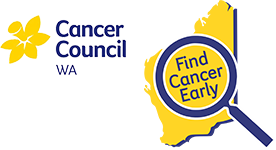Ladies’ health check call.
Just being breast aware and knowing what to look for could help find breast cancer early, which means there are more treatment options and the chances of survival are greatest.
This article was written by Ashleigh Fielding and was published in The Great Southern Weekender on 11 October 2018.
REGIONAL women are urged to keep abreast of changes to their bodies and stay up to date with their mammograms this Breast Cancer Awareness Month.
Breast cancer is the most commonly diagnosed cancer among WA women according to Cancer Council WA and Katanning resident Jeannie Steed, who has experienced it first-hand.
Ms Steed was diagnosed with stage one breast cancer three months ago in July after she attended her routine screening.
She said despite living far away from Albany and check-up services, she knew she had to prioritise an appointment.
“I called in for a repeat mammogram because I’d had a bad fall and lots of bruising came up,” Ms Steed said.
“I had a biopsy and had to wait 24 hours for a diagnosis.
“It was the longest 24 hours of my life.”
Ms Steed’s early detection and diagnosis allowed her to quickly receive a lumpectomy to remove the cancer.
“10 days post-op, I was advised I didn’t need chemo, just radiotherapy,” she said. “I was very pleased.”
Ms Steed encouraged other women to immediately book a check-up appointment if they noticed any change in their body, and to prioritise self-health.
“Get it checked out straight away, don’t put it off,” she said.
“Your imagination tells you far worse things than your doctor will.”
Cancer Council WA Regional Education Officer Bruce Beamish echoed Ms Steed’s message and hoped women would ignore the common misconception that breast cancer can only be developed if the person has a family history.
“This isn’t the case,” Mr Beamish said of the false understanding.
“Most women who develop breast cancer don’t have a family history.
“That’s why it’s so important to get to know your body and know what’s normal for you.”
Mr Beamish said symptoms to look out for include new persistent pain or discomfort, a change in the shape, size or feel of the breasts, any lump, lumpiness or thickening in the breast or underarm, any skin changes, redness, puckering, dimpling of the breast, any changes in the position of the nipple and nipple discharge.
“You don’t have to be an expert or use a special technique,” Mr Beamish said of self-breast checks.
“Just being breast aware and knowing what to look for could help find breast cancer early, which means there are more treatment options and the chances of survival are greatest.”
BreastScreen WA provides free screening mammograms to WA women aged 40 years or older with no breast symptoms every two years.
To book an appointment, you can reach Breast-Screen WA on 13 20 50 or online at breastscreen.health.wa.gov.au, or contact your GP.
– Ashleigh Fielding
